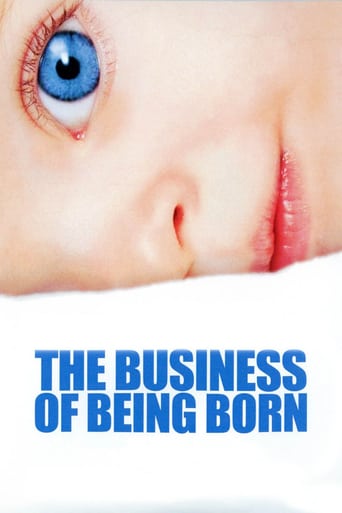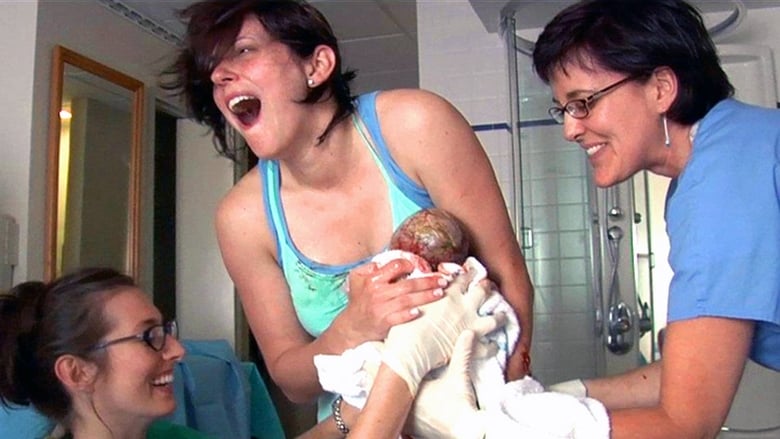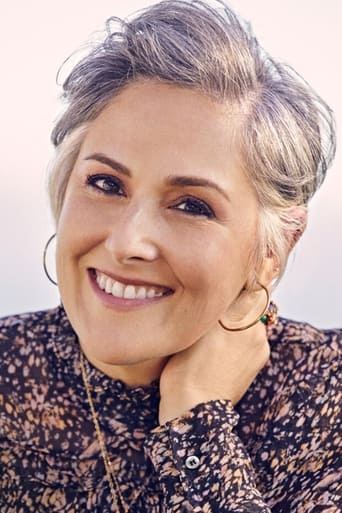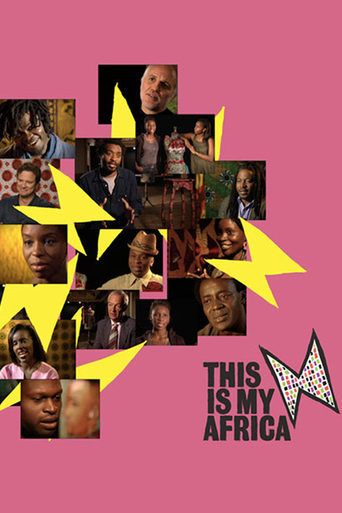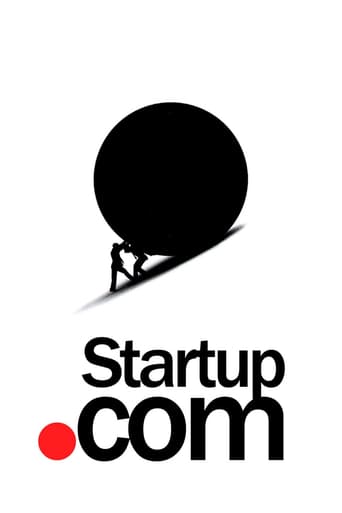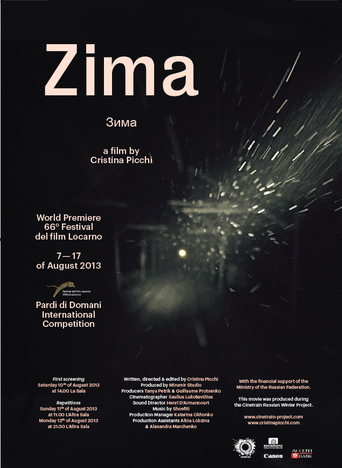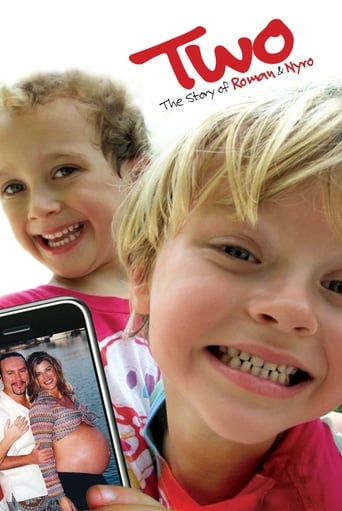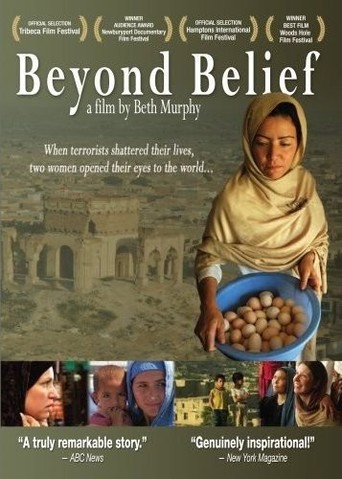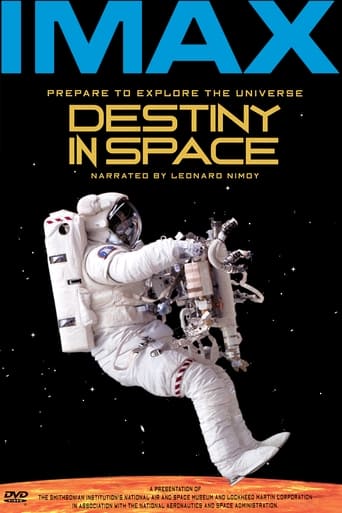The Business of Being Born (2008)
Director Abby Epstein's controversial documentary takes a hard look at America's maternity care system, juxtaposing hospital deliveries against the growing popularity of at-home, natural childbirths that some expectant parents are opting for. Former talk show host Ricki Lake was inspired to produce this compelling exposé after a dissatisfying birthing experience with her first child left her with many unanswered questions.
Watch Trailer
Cast


Similar titles
Reviews
Best movie ever!
It's easily one of the freshest, sharpest and most enjoyable films of this year.
There are moments in this movie where the great movie it could've been peek out... They're fleeting, here, but they're worth savoring, and they happen often enough to make it worth your while.
Very good movie overall, highly recommended. Most of the negative reviews don't have any merit and are all pollitically based. Give this movie a chance at least, and it might give you a different perspective.
The Business of Being Born is about birth procedure in the United States today, specifically regarding home births in contrast to hospital births. According to the documentary, these days 99% of births in the United States happen in hospitals. Most women don't even know about their options to have home births or even what a midwife is. Interviews with several birth specialists concluded that this is in fact a travesty, that the rushed, drug-infused deliveries that doctors are pushing on women these days is actually contributing to the United States having one of the highest infant and women mortality rates in any developed country in the world. Host, Ricki Lake and just about every person interviewed in the documentary really pushed women to consider natural home births with midwives. Obviously, this documentary was very biased towards one point of view. Regardless, it really got me thinking about birth and about the questions I should ask if and when I have a baby.The documentary showed four or five home births on camera. Sure, they were gross but what was nice about them was that they didn't look so frightening. Any time you see a birth scene in a movie, the woman is typically screaming her head off and many times complications arise and interventions are made. The home births made having a baby look like this super happy, empowering thing (and painful of course but I guess that goes without saying). The women were able to have their babies in their own homes on their own terms without having anyone make suggestions that they take drugs or induce.Of course there are times when those things are needed. I'm not trying to downplay the value of hospitals when it comes to having a baby. Hospitals can provide services that midwives cannot. I just think that it's good to at least think about. Assuming your pregnancy is low-risk, why not try it? I don't know about anyone else, but personally I don't really feel comfortable in hospitals.I'm a long way off from having to make these kinds of decisions. Who knows if and when I'll even have children. I'm glad I saw The Business of Being Born though. It gave me a lot to think about and really reminded me of the importance of doing research and developing your own birthing plan.
Like any good piece of propaganda, this movie starts by demonizing the OB/GYN profession (the enemy). The viewer is bombarded with images of early-20th century birthing practices as if they were still in use today. Having hospitals (and of course, insurance companies) set up as the "bad guy", the movie portrays the alternative (midwives) as the "natural" solution. Moreover, home delivery is portrayed as the only real choice for a woman to express her femininity and individual power.A few hand-picked critics of hospital births are chosen, who promptly spew out some convenient statistics in support of home delivery. Correlations (like infant mortality rates) are presented as causality without even discussing other potential factors. For example, the movie likes to recite the infant mortality rates in the US as being higher along with the higher rates of hospital vs. home births in other industrialized countries. However, at no time do these "experts" note factors like the relative experience levels of midwives in Europe vs. the US. Nor is a qualitative assessment provided that compares the level of care offered. Further, factors like miscarriages are not even discussed (if there are higher rates in Europe then these babies would not be reaching full term, thus diminishing infant mortality at birth), nor are other elements like obesity discussed (the US is the fattest nation of fatties in the world).One of the things that stood out to me was the frequent use of absolutes in their arguments: "There's no scientific evidence" to support hospital delivery as better than home deliver, etc. etc. Nothing even close to resembling counter-arguments were presented, making this documentary Michael Moore worthy in its biased presentation of its content.It's a shame something so delicate has been treated with such utter disregard for good science and disinterested research. The movie maker had a clear agenda and presented a completely one-sided argument. If you disagreed with home birth, you simply are a brainwashed fool ready to submit to fake doctors posing as OB/GYNs.Perhaps the most hilarious part of the movie came at the end, as the filmmaker went into labor one month early with a 3.5 lb baby who was in the breached position, umbilical cord wrapped tightly around its neck, as her water broke in a taxi cab as she was rushed to the ER. In spite of this, the filmmaker mused a month later "I think I would have been OK at home." Wow.
According to statistics, the infant mortality rate in the United States exceeds that of virtually every other nation in the industrialized world. The U.S. is also the only place in which far more women give birth in hospitals than at home under the care of a professional midwife. The documentary "The Business of Being Born" sees a connection between those two facts. Executive producer Ricki Lake first conceived of this film after she delivered her first baby in the hospital and then felt cheated of the potentially beautiful and meaningful experience a home birth might have provided. With the aid of director Abby Epstein, Lake has gathered together a group of women, couples, midwives and physicians who, through their own personal experiences and/or studies on the matter, help to provide evidence for her case that, for the large majority of women, delivering at home is preferable, on both a practical and spiritual level, to delivering in a hospital. Lake has even allowed herself to be filmed in the process of giving birth to her second child at home.This is an eye-opening and informative movie that admittedly provides really only one side to the issue. But it makes a pretty convincing case for that side and certainly gets the audience thinking. First, it offers a number of startling statistics, the prime one being that roughly one third of all babies born in America are now delivered through Caesarian Section, a procedure that is classified as "major surgery" but which is often treated with casual indifference by both physicians and patients (the shots of a Caesarian are far more "gruesome" than any of the shots of actual childbirth we are shown). The movie also recounts a brief but somewhat disturbing history of obstetrics practices in the United States during the past century when many women were put into "twilight sleep" and missed the birthing experience entirely. The movie also points out that, in a hospital setting, a "cascade of interventions" often prevents women from having the ultimate say in how they choose to deliver their babies. But the majority of the case is made through personal anecdotes from mothers and midwives concerning their own birthing experiences, as well as by the recording of many of those actual home births live on camera. Interestingly, after all the successful home births, the movie ends on one in which the child arrives prematurely and is in a breach position and thus must enter the world in a hospital room after all. It's an indication of the honesty and courage of the filmmakers that they didn't feel called upon to edit that sequence out of the movie.Yet, for the most part, the film takes the multi-billion dollar medical industry to task for being too quick to use drugs and a scalpel in the birthing experience. The movie also harshly criticizes the insurance industry for failing to recognize the much greater cost efficiency of home-birthing and hence refusing to cover it in their policies, thereby forcing many midwives to simply close up shop. In many ways, "The Business of Being Born" is fighting something of an uphill battle in that it appears counterintuitive - especially to a generation raised on the belief that the medical industry can do anything - to suggest that a birthing process with a physician and modern medical equipment on hand could actually be less safe than a birthing process without them (though the movie is quick to point out that the midwives are all state-certified and trained to deal with any unforeseen complications that might arise). Still, for women facing this decision - as well as for a society that for over a century now has frowned upon even the thought of natural childbirth - "The Business of Being Born" may serve as a paradigm-shifting event.
Everyone in America should watch this film, especially fathers and mothers-to-be.As a father of two babies delivered by Caesarean section, my real life experience reflects what this film presents. With a first pregnancy, men like me might trust a maternity and birthing health care system that obviously is accepted by everyone we know. As an engineer and technologist, I am attracted to statistics and procedures, I am attracted to managed systems and to logical decision-making. And I understand that giving birth involves a lot of money, and that doctors, hospitals and health care companies have a burden in how to run a successful enterprise.But the American birthing system is missing something very important... our humanity, our sensitivity, our vulnerability. Ricki Lake and Abby Epstein reveal the vulnerability of father, mother and child during pregnancy, how easily we allow a managed system to make decisions in the name of our well-being. When faced with an overwhelming majority of our family and friends who know only one way to give birth, in a hospital, there is little room for anything else.This film challenges what we assume works, and informs us that there are alternatives accepted everywhere else in the world but in the United States. I pray that other mothers and fathers-to-be, for the sake of their children's' psychological and emotional health, will step up to the plate, become informed consumers about what is happening, and consider a traditional birth, at home.Your first step is to see this film.

